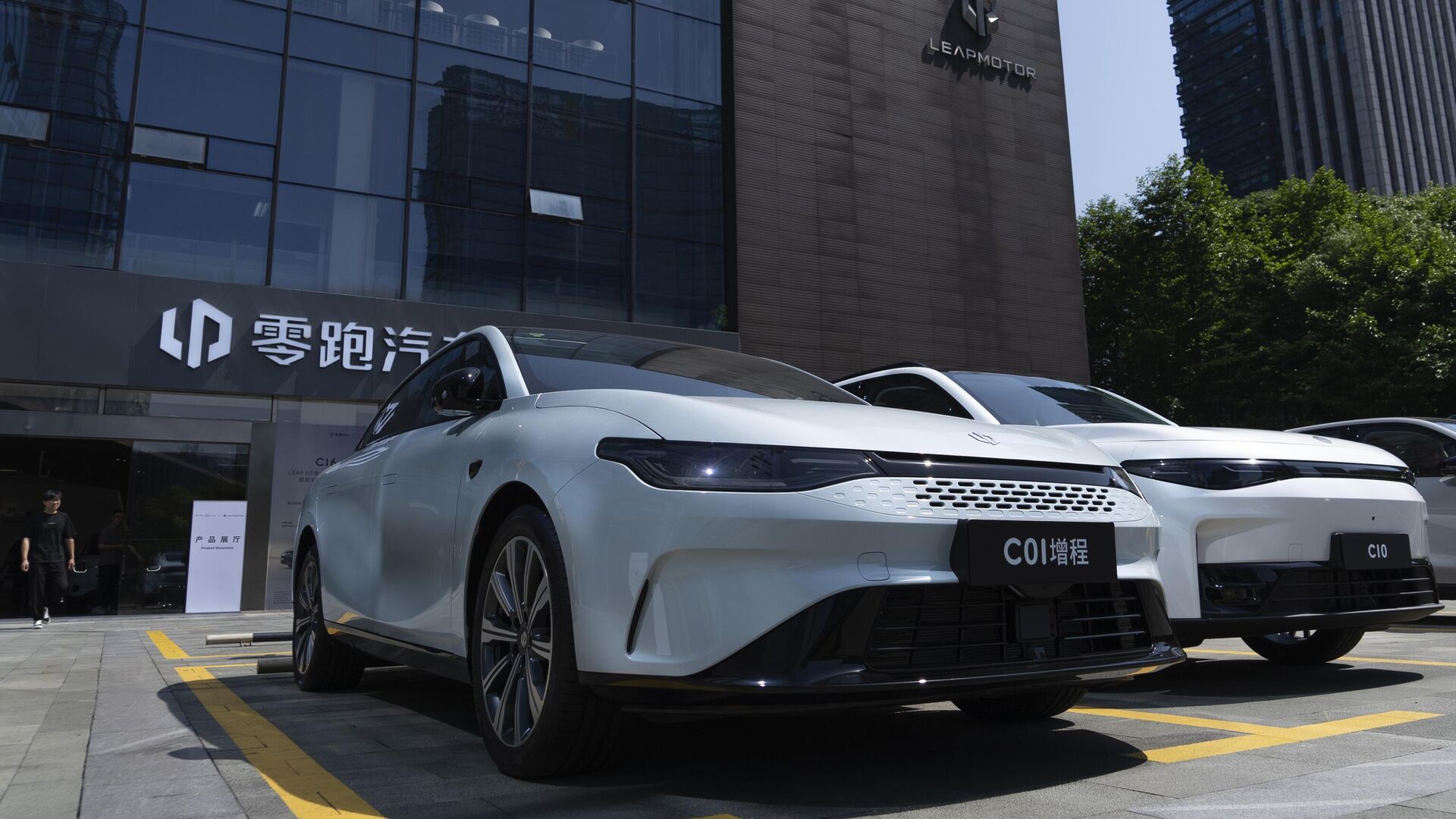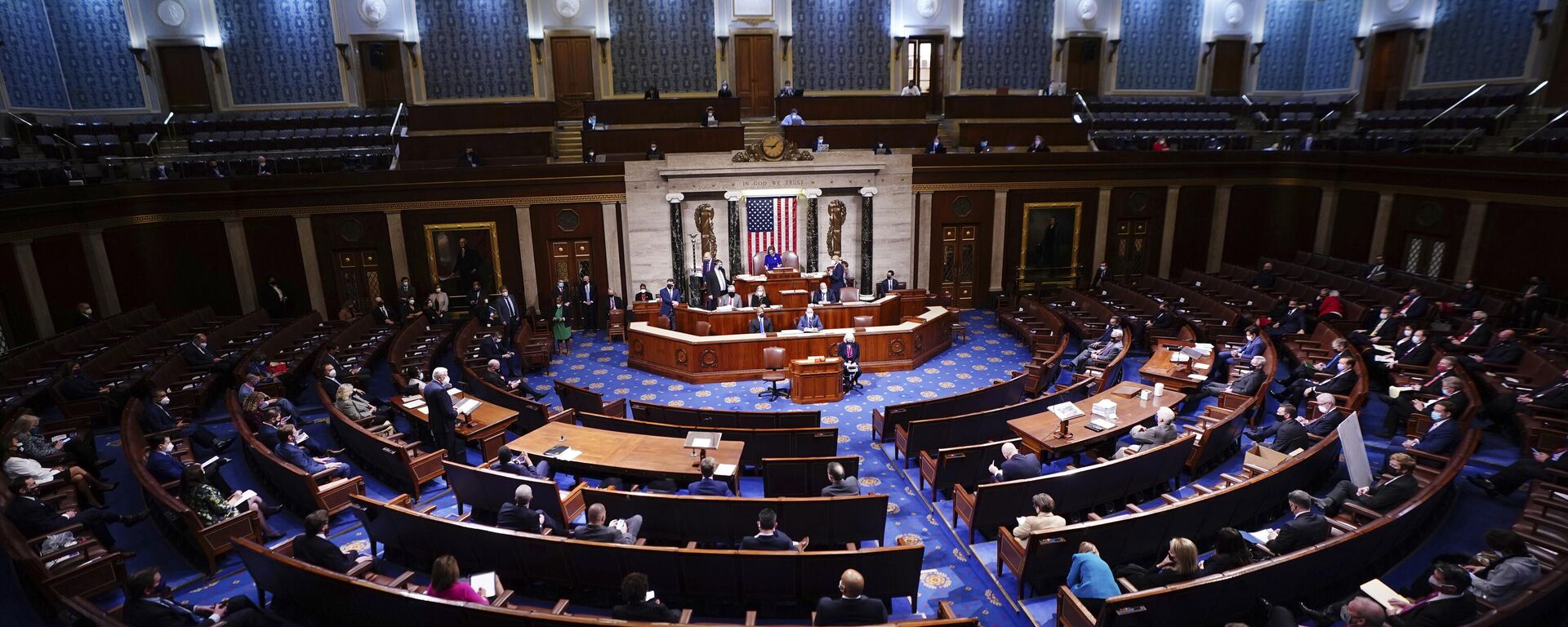https://sputnikglobe.com/20240922/biden-administration-mulling-ban-on-chinese-smart-car-software-amid-trade-spat-1120249707.html
Biden Administration Mulling Ban on Chinese Smart Car Software Amid Trade Spat
Biden Administration Mulling Ban on Chinese Smart Car Software Amid Trade Spat
Sputnik International
A US tariff hike announced on Friday targeted an array of Chinese-made goods, including a 100% duty on electric vehicles, a 50% levy on solar cells and 25% on steel, aluminum, EV batteries and key minerals. The decision disregarded warnings from automakers that the increases would disrupt supply chains.
2024-09-22T17:08+0000
2024-09-22T17:08+0000
2024-09-22T17:08+0000
world
us
china
us-china trade war
trade war
https://cdn1.img.sputnikglobe.com/img/07e8/09/16/1120249073_0:162:3066:1887_1920x0_80_0_0_1188c56b64ecdf21cac23da9e7ff89e2.jpg
The Biden administration is once again peddling security concerns as it plans to propose a ban on Chinese-made software in connected and autonomous vehicles, reported Bloomberg.Proposed phased-in regulation would reportedly affect driver assist and autonomous vehicle systems, software that tracks vehicles by using mapping and satellite location, hardware for vehicle communication systems like the V2X systems.The looming ban is driven by security concerns, as Washington has maintained that cars equipped with devices connecting them to the internet or cloud services are vulnerable to hacking attacks.The public would be given 30 days to respond to the planned prohibitions, which would be enforced by the US Commerce Department. The ban on software could be made effective in the 2027 model year, with the prohibitions on hardware to take effect in January 2029. The new spiral of US trade restrictions targeting China would come on the heels of the tariff hikes on Chinese imports introduced on Friday. The levies include a 100% duty on electric vehicles as well as new hikes on EV batteries and key minerals. Earlier in the year, Washington slapped a 100% tariff on Chinese electric vehicles. The May levy was driven by US claims that China is engaged in practices enabled by its purported intentional and state-directed policy of oversupply.China, a leader in electric vehicles and components for smart cars, has insisted it respects both the security of its foreign customers and the principles of fair competition.
https://sputnikglobe.com/20240910/us-house-passes-three-bills-targeting-china-1120091457.html
https://sputnikglobe.com/20240819/chinas-restrictions-on-antimony-exports-could-cripple-us-military-industrial-complex-heres-why-1119827925.html
china
Sputnik International
feedback@sputniknews.com
+74956456601
MIA „Rossiya Segodnya“
2024
News
en_EN
Sputnik International
feedback@sputniknews.com
+74956456601
MIA „Rossiya Segodnya“
Sputnik International
feedback@sputniknews.com
+74956456601
MIA „Rossiya Segodnya“
china-us row, china-us trade, trade tariffs, trade restrictions, critical mineral products, chinese export, chinese electric vehicles, us tariffs, chinese economy, import tariffs
china-us row, china-us trade, trade tariffs, trade restrictions, critical mineral products, chinese export, chinese electric vehicles, us tariffs, chinese economy, import tariffs
Biden Administration Mulling Ban on Chinese Smart Car Software Amid Trade Spat
A US tariff hike announced on Friday targeted an array of Chinese-made goods, including a 100% duty on electric vehicles, a 50% levy on solar cells and 25% on steel, aluminum, EV batteries and key minerals. The decision disregarded warnings from automakers that the increases would disrupt supply chains.
The Biden administration is once again peddling security concerns as it plans to propose a ban on Chinese-made software in connected and autonomous vehicles, reported Bloomberg.
Proposed phased-in regulation would reportedly affect driver assist and autonomous vehicle systems, software that tracks vehicles by using mapping and satellite location, hardware for vehicle communication systems like the V2X systems.
Connected vehicles (CVs) are passenger cars, trucks, busses that are able to communicate wirelessly with other vehicles, the roadway infrastructure, such as traffic signals, as well as other non-motorized roadway users (e.g., pedestrians, bicyclists).
The looming ban is driven by security concerns, as Washington has maintained that cars equipped with devices connecting them to the internet or cloud services are vulnerable to hacking attacks.
The public would be given 30 days to respond to the planned prohibitions, which would be enforced by the US Commerce Department. The ban on software could be made effective in the 2027 model year, with the prohibitions on hardware to take effect in January 2029.
The new spiral of US trade restrictions targeting China would come on the heels of the tariff hikes on Chinese imports introduced on Friday. The levies include a 100% duty on electric vehicles as well as new hikes on EV batteries and key minerals.
Earlier in the year, Washington slapped a 100% tariff on Chinese electric vehicles. The May levy was driven by US claims that China is engaged in practices enabled by its purported intentional and state-directed policy of oversupply.
China, a leader in electric vehicles and components for smart cars, has insisted it respects both the security of its foreign customers and the principles of fair competition.






